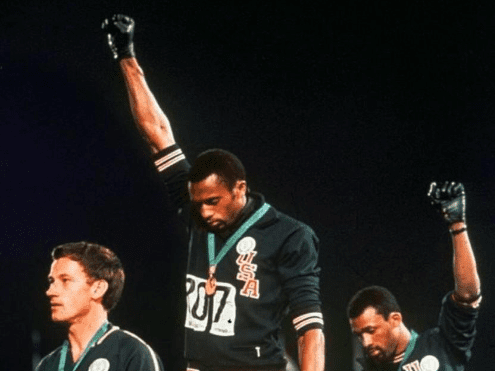IOC will begin talks about easing protest ban at Olympics
The change comes after athletes spoke up against rule 50, which bars any sort of political protest during the Olympic Games

Rule 50 of of the International Olympic Committee (IOC)’s charter says that athletes may not engage in protest or political propaganda while on the Olympic stage. This rule has been called out over the past two weeks as worldwide protests for social equality have persisted as a result of the death of George Floyd. Recently the IOC defend its neutrality regulation, but on June 10, after athlete and public backlash, it said it would begin talks that could lead to athletes making stronger protests at future Olympics.
Many athletes have called for change and insisted that if the IOC truly cared about supporting athletes, they wouldn’t limit their expression while on the field of play. The IOC reiterated its support for the rule earlier this year, ahead of the Tokyo Olympics, confirming to The Telegraph this week that “the guidelines are still in place” against protests.
While upholding Rule 50, the IOC still tweeted on Wednesday that they “condemn racism in the strongest terms.” Athletes from around the world took issue with the statement, voicing their anger on social media.
.@olympics needs to start being part of the solution. Racism and inequality doesn’t take a two week break for the the Olympics and athletes from around the world desperately need this platform to bring visibility and a voice to the issues we face as a society. https://t.co/YVyq8bufYW
— Kevin Sullivan (@ksully330) June 10, 2020
The same day, the IOC announced it will look into ways it can support athlete protests.
The athlete voice
The IOC’s Athletes’ Commission will explore ways Olympians can show support “for the principles enshrined in the Olympic charter in a dignified way,” said IOC president Thomas Bach.
“We also agree at the same time with the Athletes’ Commission we must always respect the Olympic spirit. This means we must make a difference between such a support for the principles enshrined in the Olympic charter and potentially divisive demonstrations.”
The Canadian Olympic Committee will work with its own athletes’ commission “in identifying opportunities for Canadian Olympians to continue to maximize the athlete voice,” said the organization in a statement.
“During this time of protest and self-reflection, we remain determined to listen to our Team Canada athletes so we can best stand united against racism, both casual and systemic.”
